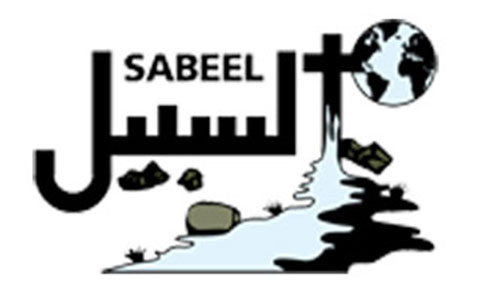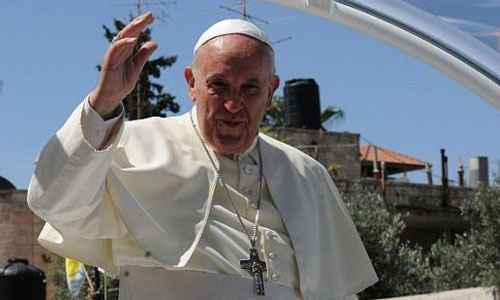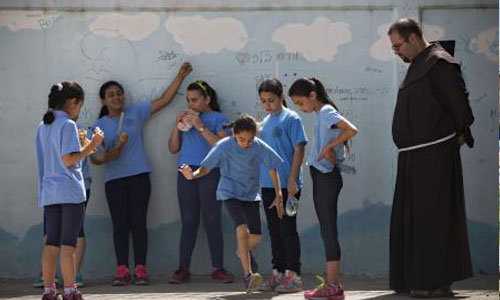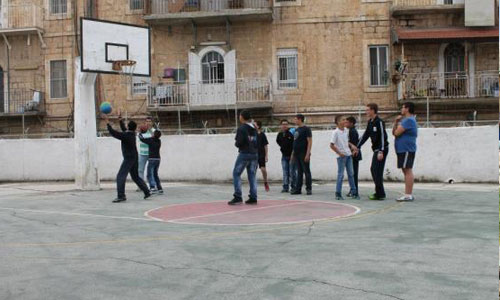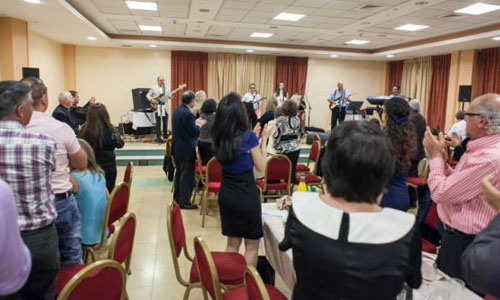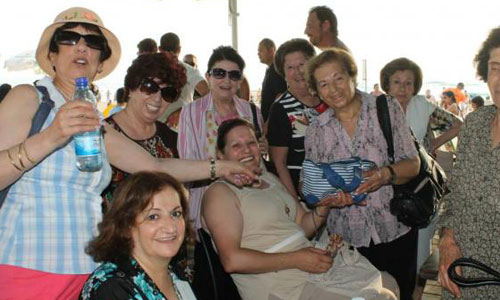
Around 30 women, mostly from Jerusalem, joined Sabeel for its annual ecumenical 2-day spiritual retreat in Haifa. The theme of the retreat was inspired by Matthew 28:10, when Mary Magdalene and Mary went to Jesus’ tomb: “Then Jesus said to them, ‘Do not be afraid; go and tell my brothers to go to Galilee; there they will see me.’”
The retreat took place at the beautiful Stella Maris Monastery, a 19th century monastery located on the slopes of Mount Carmel overlooking the Mediterranean Sea. Father Suheil Khoury, a Melkite priest originally from the depopulated and destroyed Palestinian village of Iqrit, led the first session of the day, connecting the theme of the retreat to the parable of the sower (Matthew: 13 1-8).The women were then divided into 3 groups, each with the task to discuss and reflect on a question using the parable’s metaphor of sower, seeds and soil. Father Khoury spoke of the importance of parable in the Bible, explaining that sometimes they are real and sometimes they are just stories. What is important, he said, is that sometimes you have to go beyond the literal meaning of the story. Father Khoury then joined the women for lunch where they continued their enthusiastic discussion.
In the second session, Sabeel co-founder Cedar Duaybishighlighted the2012 Church of Scotland Report, “The Inheritance of Abraham,” where the Church of Scotland rejects any premise that scripture offers any people a divine right to territory. The theme of her session was Hebrews 1: 1-2: “Long ago God spoke to our ancestors in many and various ways by the prophets, but in these last days he has spoken to us by a Son.” At the end of the session, the women were happy to hear that the Arabic translation of the Church of Scotland report will be launched in the near future. In the afternoon, the women took a break at the seaside and later enjoyed dinner at the hotel. During the evening debriefing session, the women reflected on the day’s topics, and found the day to be very powerful.
The next day after breakfast, one of the participants, Lily Said, gave a session about the crucifixion of Jesus and linked it to the Palestinians held captive in Israeli prisons. Then Cedar Duaybis spoke about the role of women during Jesus’s time, and discussed how like a painting, we must go deeper into the painting, to see beyond it. Likewise, when we go deeper inside ourselves, the spirit inside us also grows. Mrs. Duaybis emphasized the story of Mary and Martha and provided examples of how Jesus related to women and also revealed his divine nature and gave messages to women to spread the word of God.
After lunch, the Sabeel women went to the Baha’i World Centre to visit the shrines and gardens in the spiritual heart of the Baha’i faith, one of the world’s more recent religions (since 1844). The founder of this faith had a message of unity, “teaching that there is only one God, one human race, and that all of the world’s religions have been progressive stages in the revelation of God’s will and purpose for humanity.”
The Sabeel women enjoyed free time in Haifa before they returned to Jerusalem. The retreat, which included the singing of hymns throughout, regenerated their spirits, reminding them to be steadfast, especially during the recent increased collective punishment of Palestinians in the West Bank and Jerusalem.

